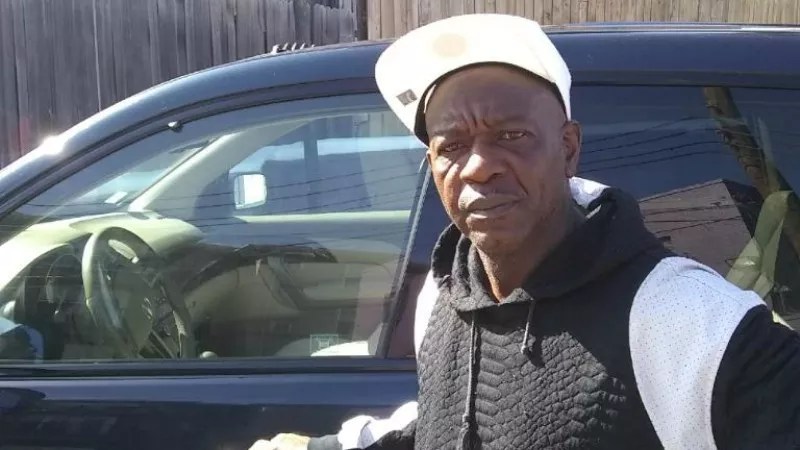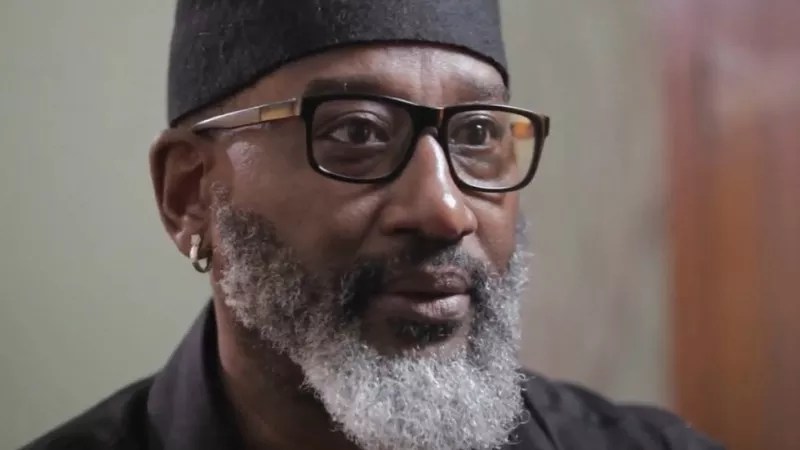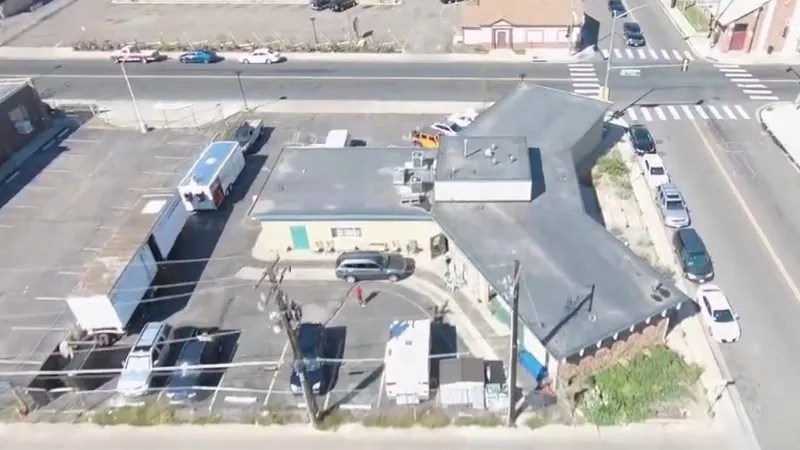
Courtesy of Calvin Golden

Audio By Carbonatix
When Calvin Golden went to prison for first-degree assault, he was 39 and had most recently worked at a gas company filling propane tanks for a living. He received a 26-year sentence, and even though he was paroled early, the world changed during his decade and a half in stir.
“When I went in, we had flip phones,” he recalls. “I’d never had the opportunity to use a cell phone or a laptop computer. I really couldn’t even work a computer, and when I got a cell phone, it took me a minute to adjust. My son called me, and I didn’t know how to answer the phone. I was tapping on it and I couldn’t get it to answer, so I called him back. He said, ‘Dad, you have to swipe it.'”
Today, Golden has caught up with the times. In addition to having mastered his cell phone, he’s a chef at the Curtis Hotel in downtown Denver. He also has an apartment, owns a car and is taking care of himself – and he gives much of the credit for his transformation to having gotten a second chance.
Specifically, Golden completed a program at the Second Chance Center, an Aurora facility that helps former prisoners who’ve paid their debt to society restart their lives. The nonprofit offers management, mentoring and resources to help the formerly incarcerated re-enter society while addressing a host of potential obstacles, including substance abuse, mental health issues and more.
Hassan Latif, the center’s executive director, knows about these challenges from personal experience. “I spent eighteen years in Colorado correctional facilities,” he says. “In January, I’d been home for thirteen years, but I saw two children grow up in the visiting room. It’s been an ordeal, and a lot of times, the damage done over the course of incarceration takes years to heal – and it did for me. It took twelve years for me and my daughter to get to a comfortable place, because I saw her first steps in county jail, and when I came home, she was in college. And my wife had to maintain a household on her own over the course of my years in prison.”

Hassan Latif is the executive director at the Second Chances Center.
At the same time, he goes on, “I’m more fortunate than most. Neither of my children went through any difficulties in their life that brought in the criminal justice system or addiction or the issues I see very prominently in our population, or with their children or spouses. But I know it was very difficult on my family, and I know how hard it is for those who don’t have support to help their family adjust to these transitions. It saddens me that there’s not more help for folks trying to build bridges back to family – and I want to be a part of that.”
Latif founded the center in 2012 under very modest circumstances. “The first year, it was just myself in what I called my mobile unit – my car,” he recalls. Seven years later, he has a staff of sixteen, half of whom know about prison life from the inside. He estimates that they have “about 120 years of accumulated incarceration time. People coming out of incarceration can look at them and see that we’ve been able to come out and carve lives of significance in this world. It’s very hopeful, but at the same time, it’s the truth.”
In the meantime, the scope of services provided by the Second Chance Center has broadened. “At first we resisted being drawn into certain areas,” Latif acknowledges. “But the needs of our clients have made it necessary to expand.” For instance, “There’s an increasing flow of women coming out of incarceration. That’s the fastest-growing population of newly incarcerated individuals in America, and their needs with children have forced us to look at ways to help in that area, like Department of Labor grants for eighteen- to 24-year-olds. They don’t have to be coming out of prison. They just have to be dropouts or someone currently engaged in the criminal justice system. We’re hoping to break that cycle, and we expect people to do well.”
For the most part, they do. According to Latif, “Our recidivism rate has been under 10 percent for the last three years, when the average nationally is about 40 percent – and it’s around 49 percent in Colorado.”
The next step for the Second Chance Center is Providence at The Heights (PATH), a complex to house clients as they go through the program that is slated to open in 2020. “We’re going to have fifty units – forty single-bedroom apartments and ten two-bedrooms,” Latif reports. “It’s going to be the first project of its kind in Aurora, and I’m pretty proud to be a part of it.”

An overhead view of the Second Chance Center.
As PATH moves forward, the center continues to assist people like Golden, who emerged from behind bars with a lot of catching up to do.
“When I was released from prison, I was sent to a shelter,” he remembers. “And during that time, I went to Second Chance to see what they had to offer. When I got there, I met a group of people who really encouraged me that I was in the right place. They vouchered me a bed, because I was sleeping on the floor at the shelter. Then a transitional house became available – one they owned. And I also went to mentor meetings, and I found out the right place for the things I needed. I really didn’t have any food, but they allowed me to come up to eat. They also gave me clothes, bus tickets and pretty much everything I needed. They even provided me with a bike before I got a car so I could get out there and get myself together.”
In addition, Golden continues, “I got a case provider who helped me do a résumé, and that helped me get a job.”
He started at the Curtis as a dishwasher, and while the salary was modest, it was a lot better than the 62 cents a day he’d earned cutting hair in prison. “I took a lot of pride in what I was doing, and my work ethic was so good that they felt I could do other things. They showed me how to put food in the oven, and it was something I started enjoying. It gave me a sense of purpose, doing things in an honest way. I started setting goals on things I wanted to buy when I got a certain amount of money, and after I saved a few paychecks, the center helped me get my apartment and encouraged me to get a driver’s license. Now I’m driving all the time.”
Even though he’s doing well on his own, Golden still likes to visit the center. “I can go up there at any time. I know they’re busy, but they’ll take a minute or two just to listen, and that’s so important to me. They would always take the time and knew what to do when I was crying about certain things. It’s hard to go to a place and say, ‘I don’t have deodorant or lotion to take care of myself.’ But they opened up their arms to me. ‘You need socks? Here are some socks. What else do you need to feel better about yourself?’ And that’s what it’s all about. If you’re feeling bad, you’re going to act out on it – and I was feeling bad, but I had the encouragement not to do it, because they were like, ‘Whatever you need, we’ve got you.’ I thank God I had somebody behind me.”